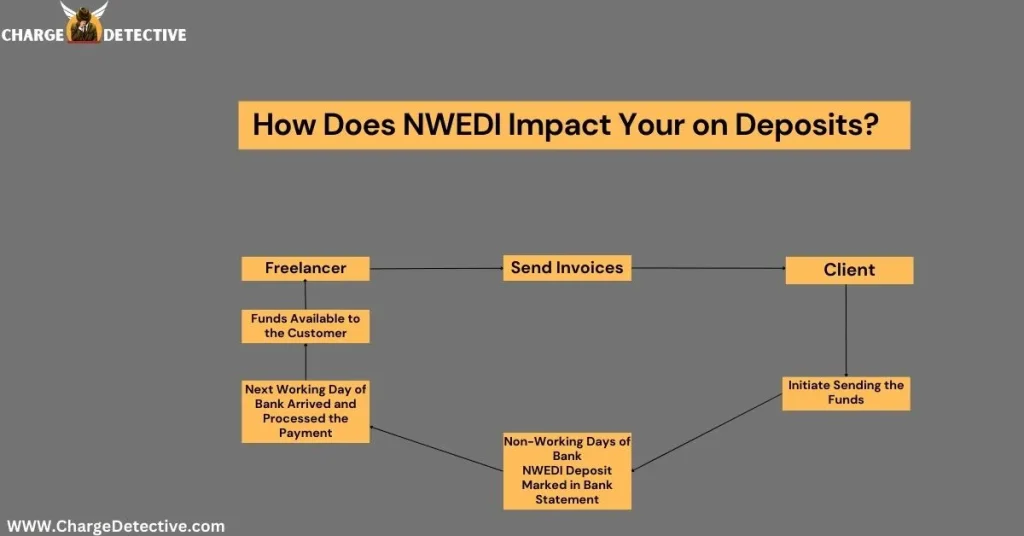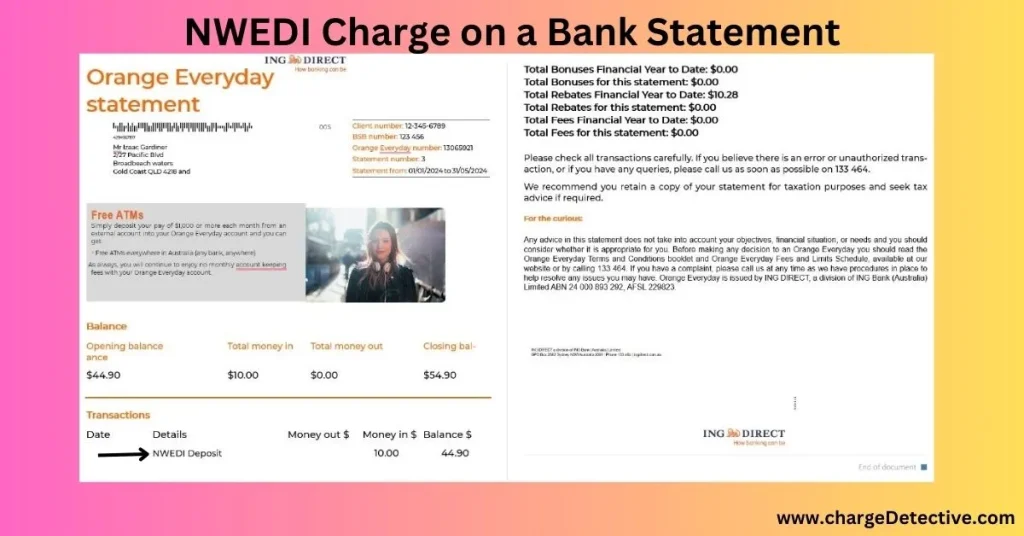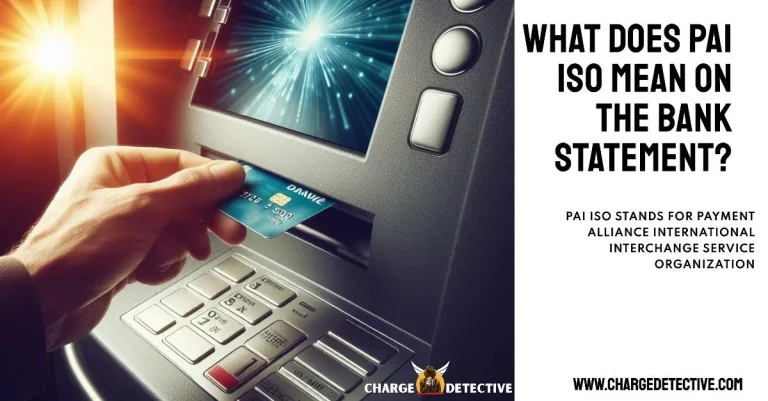What is NWEDI Charge on a Bank Statement? What It Means
NWEDI charge on a bank statement means a deposit was placed into your account on an off day of a bank such as a weekend or a public holiday. Banks use this as a code on a bank statement that indicates a deposit was made in an account when banks are closed.
Have you ever received an unfamiliar charge on a bank statement? If yes, don’t be afraid it is difficult for many of us to figure out the financial abbreviations. Because bank statements are important statements that include the deposit on them. These statements are essential elements of money management.
In this guide, I will share my experience while exploring the charge, examine this code word, and what it means on a bank statement, and explain its effects on your deposit and a bank statement. So, fasten your seat belts and understand the charge once and for all.
Read More About What Does TST Mean on a Credit Card Charge?
Understanding What is NWEDI Charge: The Breakdown
NWEDI stands for Non-Workday Electronic Deposit Item. Simply, it means a notification from your bank that a deposit has been made electronically into your account on a day other than standard business hours. Just like on weekends or public holidays when banks are closed for work.
The Significance of NWEDI Charge on Bank Statement
While this abbreviated code may appear like an insignificant detail, it plays a pivotal role. By distinguishing deposits made during regular business hours from non-working days deposits are more easily identified for processing purposes, thus proving useful for:
Confidently Reconcile the Accounts
Understanding the cryptic code can help you accurately match deposits with paychecks or transfers even if funds arrive a day or two later.
Improved Financial Tracking
Being aware of when deposits are initiated on non-working days gives a clearer view of your overall cash flow situation.
Reducing Confusion
It works to remove any uncertainty regarding deposits made outside regular banking hours, providing you with a clear picture of account activity.
How Does NWEDI Impact on Your Deposits?
The impact on your deposit can be explained by taking an example let’s imagine:
Assume that your bank working days schedule is Monday to Thursday and you are a freelancer and invoice clients regularly. Once you finish your project send the invoice to your client and initiate sending the funds electronically on the same day.

But the next day is Friday a Non-working day for your bank. The payment was processed on the same day but will not be shown in your account until Monday. Your bank will show on your bank statement as a NEWDI deposit, which indicates that electronic funds were deposited on a non-working day.
Why does NWEDI are shown on your bank statement?
As discussed above, when deposit inflow in your account on a day other than the bank’s standard operating working days like weekends or public holidays then this charge code appears on your bank statement.

Previous practices of banks were to hold the funds whenever a deposit came into an account of account holders on non-working days. And release those funds on the next working day of business banking hours.
So, a Saturday deposit would not be available until Monday. Fortunately, technology has transformed things! Most banks now process these deposits electronically and promptly, so the monies are readily available.
How Does NWEDI Affect My Bank Statement?
This charge has no significant effect on my bank statements; it’s a code simply used by banks as an indication that deposits were made on non-business days and can quickly be found in your account balance.
Notably, it’s important to keep in mind that deposits made on non-working days may take longer to appear on your bank statement as banks typically generate statements on working days – any transactions performed outside these periods may not be recorded until the following statement has been created.
Read More What is the USCC IVR Charge on My Bank Statement?
Why Is It Necessary to Review Your Bank Statement?
Reviewing your bank statement regularly is essential in ensuring all transactions listed are correct and here are a few reasons why:
FAQs – Frequently Asked Questions
Conclusion
It is simply used by banks to distinguish deposits made on non-working days versus working days. It will have no significant impact on your account balance – all deposit amounts will still appear as part of your balance statement.
These deposits may take longer to appear on your statement as banks typically generate statements on working days. Although these are legitimate and common, often associated with direct deposits or other electronic fund transfers.







